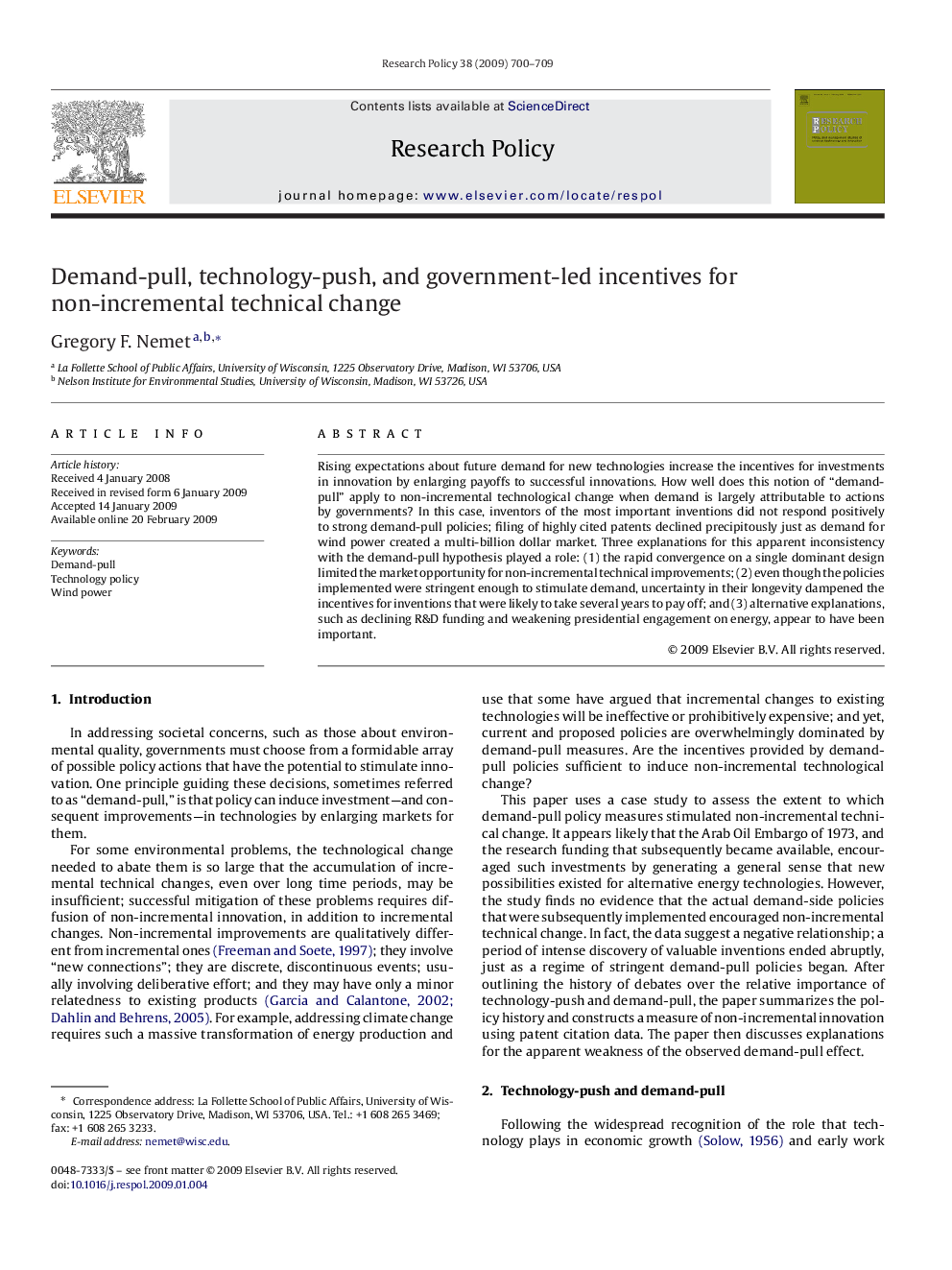| Article ID | Journal | Published Year | Pages | File Type |
|---|---|---|---|---|
| 984221 | Research Policy | 2009 | 10 Pages |
Rising expectations about future demand for new technologies increase the incentives for investments in innovation by enlarging payoffs to successful innovations. How well does this notion of “demand-pull” apply to non-incremental technological change when demand is largely attributable to actions by governments? In this case, inventors of the most important inventions did not respond positively to strong demand-pull policies; filing of highly cited patents declined precipitously just as demand for wind power created a multi-billion dollar market. Three explanations for this apparent inconsistency with the demand-pull hypothesis played a role: (1) the rapid convergence on a single dominant design limited the market opportunity for non-incremental technical improvements; (2) even though the policies implemented were stringent enough to stimulate demand, uncertainty in their longevity dampened the incentives for inventions that were likely to take several years to pay off; and (3) alternative explanations, such as declining R&D funding and weakening presidential engagement on energy, appear to have been important.
